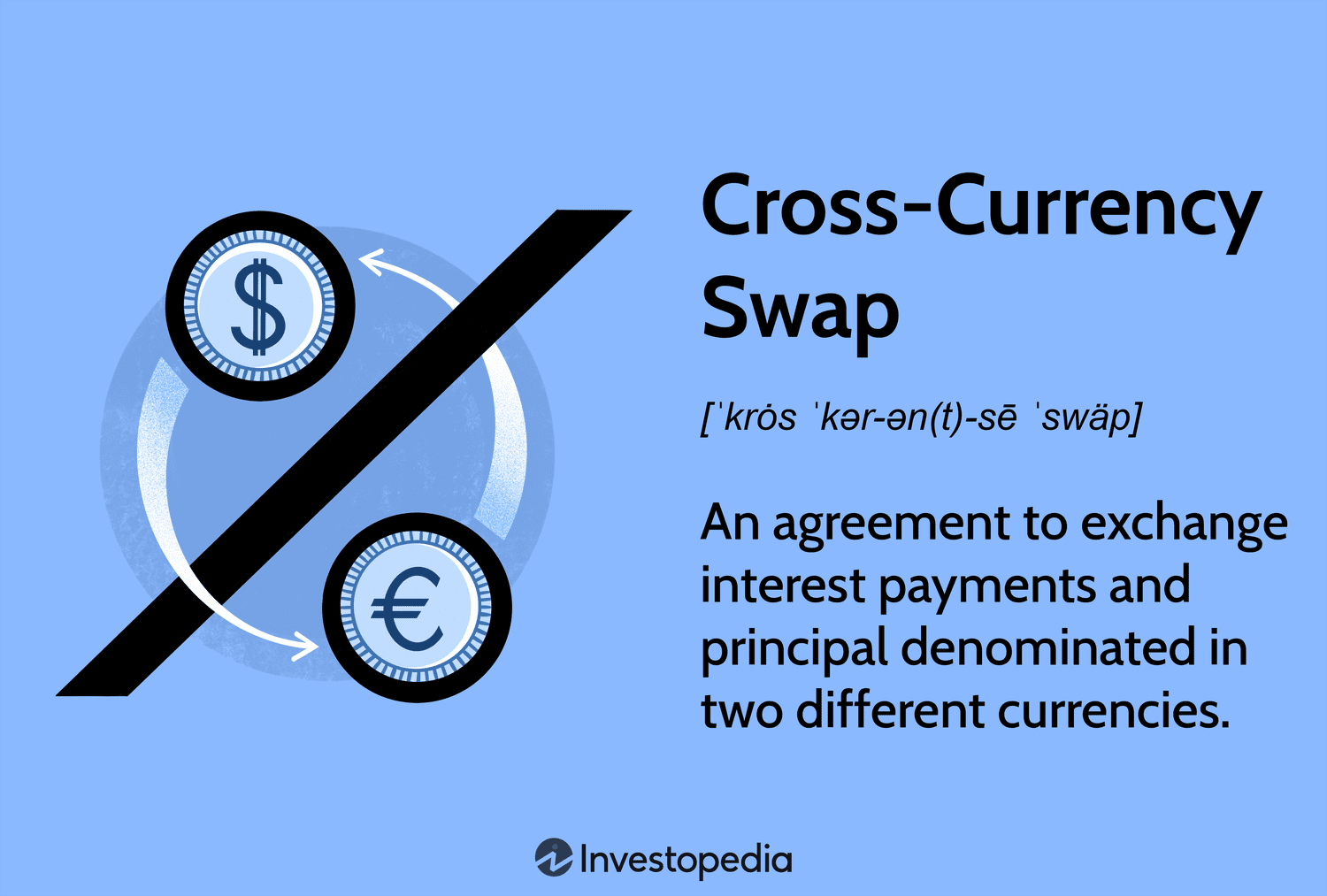Cross-Currency Swaps Explained: A Complete Guide to Currency Exchange Contracts
A cross-currency swap is a financial agreement where two parties exchange equivalent amounts of principal in different currencies and make interest payments on the received currency. This derivative instrument helps companies manage currency risk and optimize their global financing strategies.

Arrows connecting two currency coins
How Cross-Currency Swaps Work
The swap process involves three main steps:
- Initial exchange of principal amounts at an agreed exchange rate
- Regular interest payments in the received currency
- Final exchange of principal at the original rate
Key terms that parties must agree upon include:
- Principal amounts in each currency
- Exchange rate for the swap
- Interest rate types (fixed or floating)
- Payment schedule
- Maturity date
Primary Uses
- Hedging foreign exchange risk
- Aligning debt with revenue currencies
- Reducing borrowing costs
- Facilitating international investments
- Optimizing cash flow management
Advantages:
- Protection against currency fluctuations
- Access to better borrowing rates
- Entry to global capital markets
- Flexible interest rate structures
- Improved cash flow matching
Disadvantages:
- Counterparty default risk
- Interest rate fluctuation exposure
- Basis risk from benchmark mismatches
- Limited liquidity in OTC markets
- Complex structure and high costs
Practical Example
A U.S. company needing 100 million euros for German operations:
- Borrows $100 million in U.S. at SOFR + 1%
- Enters 5-year swap with European bank
- Exchanges $110 million for 100 million euros (rate: 1.10 EUR/USD)
- Makes periodic interest payments
- Returns principal at original rate when swap matures
Cross-currency swaps provide valuable tools for international finance management, though careful consideration of risks and costs is essential. They're particularly useful for multinational companies seeking to align their financial obligations with their operational currencies while managing exposure to foreign exchange fluctuations.
Related Articles

5 Simple Steps to Buy Cryptocurrency with N26

